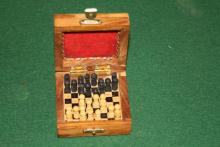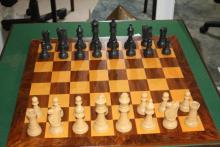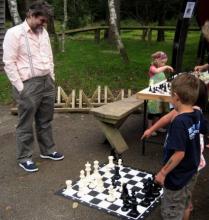Powered by Drupal
Members' chess sets
Quotes
|
"She hung up and I set out the chess board. I filled a pipe, paraded the chessmen and inspected them for French shaves and loose buttons, and played a championship tournament game between Gortchakoff and Meninkin, seventy-two moves to a draw, a prize specimen of the irresistible force meeting the immovable object, a battle without armour, a war without blood, and as elaborate a waste of human intelligence as you could find anywhere outside an advertising agency." |
Raymond CHANDLER, The Long Goodbye, Chapter 24, final sentences. |





























































